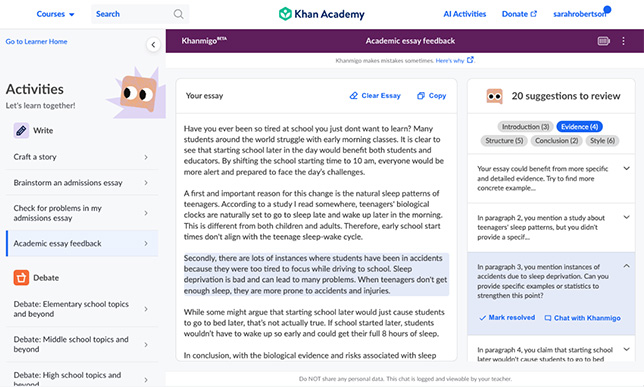Khan Academy Cuts District Price of Khanmigo AI Teaching Assistant, Adds Academic Essay Feature
Khan Academy is slashing the district price of its Khanmigo AI teaching assistant tool, from $60 per student/per year to $35 per student/per year. The price cut reflects a commitment to "making AI as accessible as possible," the organization said.
Khanmigo launched in a limited pilot last spring. Since then, Khan Academy has made "significant engineering strides to reduce the high computational costs of AI," the nonprofit said, and is passing those savings on to customers. Currently, more than 30 school districts and 28,000 students and teachers are piloting Khanmigo in the classroom.
Khan Academy has also announced a new Khanmigo feature called "Feedback on Academic Essays." Using the tool, students can submit a draft essay and receive AI guidance through the revision process, including feedback on essay structure and organization, how well students support their arguments, style and tone, and more. Students can chat with Khanmigo about their feedback and ask follow-up questions for further clarification.

Khanmigo's Feedback on Academic Essays
Feedback on Academic Essays is slated to go live at the end of November. For more information, visit the Khan Academy site.
About the Author
Rhea Kelly is editor in chief for Campus Technology, THE Journal, and Spaces4Learning. She can be reached at [email protected].